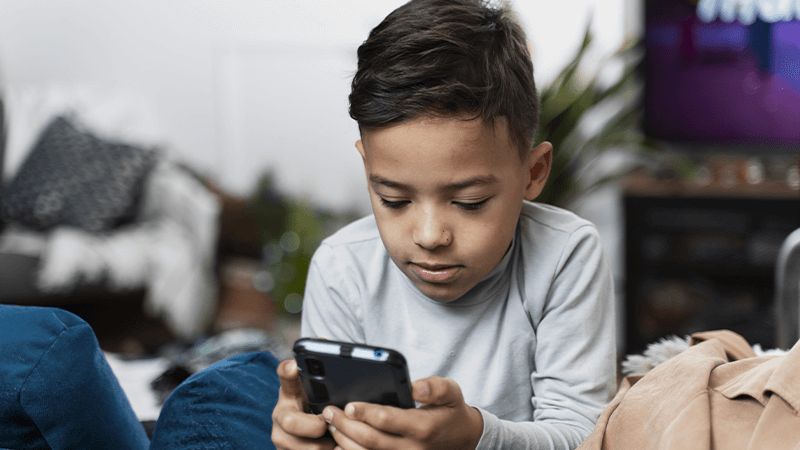In today’s hyper-connected world, mobile phones have become essential, and life without them feels uneasy for many. Children are also impacted by this smartphone trend, with even young kids and toddlers becoming addicted. They spend hours each day playing video games, scrolling Instagram reels, or watching YouTube videos.
While smartphones offer many benefits, they also come with harmful effects. As one of the top preschools in Bangalore, we understand the importance of addressing smartphone addiction in children. In this blog, we will explore the surprising health consequences of smartphone addiction and provide tips on how parents can monitor and guide their children’s smartphone usage to ensure a balanced and healthy lifestyle.
Physical Health Consequences
Smartphone addiction in children has been linked to various physical health issues. One of the concerns is that excessive phone use disrupts children’s sleep patterns, leading to sleep disturbances and irregular sleep schedules. Another common problem is eye strain and vision issues resulting from prolonged screen time, causing discomfort and potential long-term eye problems. Moreover, using smartphones in poor postures can trigger neck and back pain due to poor posture.
Mental Health Consequences
Excessive smartphone use in kids can lead to serious mental health issues. Kids often feel anxious and restless without their devices, causing stress and sleep problems. Excessive use affects their focus, making it hard to concentrate on homework or conversations. This can lower their academic performance and hinder social interactions.
Alarming research from McGill University shows heavy smartphone use in children can lead to paranoia, delusions, and hallucinations. This highlights the deep impact smartphones can have on young minds, emphasizing the need for balanced usage to protect children’s mental health.
Cognitive Consequences
Another major health consequence of smartphone addiction in children is the impact on their cognitive abilities. When kids spend too much time on their phones, it can lead to impaired cognitive function. This means they might struggle with tasks that require thinking, memory, and attention. For example, constantly switching between apps and notifications can make it hard for them to focus on one thing at a time. This can affect their ability to learn and remember new information.
Smartphone addiction can also lead to reduced productivity. Children might find it difficult to complete homework or other important tasks because they are easily distracted by their phones. This can result in lower academic performance and less time spent on creative or physical activities.
Digital Fatigue
Digital fatigue is a real issue. Excessive smartphone use can lead to digital fatigue in children, causing them to develop an aversion to digital media. This can be a significant disadvantage in the long run, as digital technologies are integral to the professional world and will only become more important. Early digital fatigue can hinder their future careers, putting them at a disadvantage.
Role of Parents in Monitoring and Guiding Children’s Smartphone Use
Parents play a crucial role in guiding their children’s smartphone use. They should set clear rules about screen time and content. It’s important to lead by example and use phones responsibly. Regularly discussing online safety and the impact of excessive use helps children understand the consequences. Encouraging offline activities and family time can balance their digital life. Monitoring apps can also help parents keep track of their child’s smartphone usage.
Conclusion
The bottom line is that smartphones are amazing but using them too much can make kids too focused on screens. It’s important to find a balance between technology and real-life experiences so our children can grow up healthy and happy. Let us spend less time on our phones, reading a book, or playing outside. The greatest memories come from real experiences, not from screens.
At Chrysalis Kids, the best nursery schools in bangalore, we make sure to balance technology with other activities, so your child can have the best of both worlds. Join us in raising kids who are comfortable with technology but still connected to the real world, ready to face the future with confidence and creativity.
